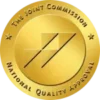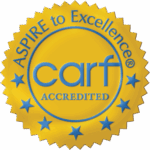Fentanyl Addiction Treatment Center in TN and KY

Medically Reviewed By:
Dr. Vahid Osman, M.D.Board-Certified Psychiatrist and Addictionologist
Dr. Vahid Osman is a Board-Certified Psychiatrist and Addictionologist who has extensive experience in skillfully treating patients with mental illness, chemical dependency and developmental disorders. Dr. Osman has trained in Psychiatry in France and in Austin, Texas. Read more.

Clinically Reviewed By:
Josh Sprung, L.C.S.W.Board Certified Clinical Social Worker
Joshua Sprung serves as a Clinical Reviewer at Tennessee Detox Center, bringing a wealth of expertise to ensure exceptional patient care. Read More
Partnership to End Addiction (Drugfree.org)
Partnership to End Addiction. (n.d.). What is fentanyl? Retrieved August 14, 2025, from https://drugfree.org/drugs/what-is-fentanyl/ SAMHSA+14SAMHSA+14CDC+14Partnership to End Addiction+6Partnership to End Addiction+6Partnership to End Addiction+6
Partnership to End Addiction. (2023, November). Marijuana and fentanyl. Retrieved August 14, 2025, from https://drugfree.org/article/marijuana-and-fentanyl/ Partnership to End Addiction
National Institute on Drug Abuse (NIDA)
National Institute on Drug Abuse. (2025, June). Fentanyl. Retrieved August 14, 2025, from https://nida.nih.gov/research-topics/fentanyl hcdrugfree.org+13National Institute on Drug Abuse+13National Institute on Drug Abuse+13
National Institute on Drug Abuse. (n.d.). Reducing the risks of fentanyl in the U.S. Retrieved August 14, 2025, from https://nida.nih.gov/videos/reducing-risks-fentanyl-in-us National Institute on Drug Abuse
National Institute on Drug Abuse. (n.d.). Number of pills containing fentanyl seized by law enforcement in the U.S. Retrieved August 14, 2025, from https://nida.nih.gov/research-topics/fentanyl/fentanyl-infographic National Institute on Drug Abuse+9National Institute on Drug Abuse+9National Institute on Drug Abuse+9
SAMHSA (Substance Abuse and Mental Health Services Administration)
Substance Abuse and Mental Health Services Administration (SAMHSA). (n.d.). Fentanyl and xylazine test strips. Retrieved August 14, 2025, from https://www.samhsa.gov/substance-use/treatment/overdose-prevention/fentanyl-xylazine-test-strips SAMHSA+1
Substance Abuse and Mental Health Services Administration (SAMHSA). (n.d.). Illegally made fentanyl. Retrieved August 14, 2025, from https://www.samhsa.gov/data/faq/release-faqs/illegally-made-fentanyl SAMHSA+1
Substance Abuse and Mental Health Services Administration (SAMHSA). (2025, March 14). ASAM: HALT Fentanyl Act statement. Retrieved August 14, 2025, from https://www.asam.org/news/detail/2025/03/14/asam-HALT-statement Default+2Default+2
Additional Scientific & Public Health Sources
Center for Disease Control and Prevention (CDC). (2021). THE FACTS ABOUT FENTANYL [Fact sheet]. Retrieved August 14, 2025, from https://www.cdc.gov/stop-overdose/media/pdfs/2024/05/CDC_Fentanyl-Fact-Sheet_General_508.pdf CDC+1
ScienceDirect. (2024). Balancing acts: The dual faces of fentanyl in medicine and public health. Forensic Science International, (Year). Retrieved August 14, 2025, from https://www.sciencedirect.com/science/article/pii/S1344622324001172 ScienceDirect
MDPI. (2024). The rise of fentanyl: Molecular aspects and forensic investigations. International Journal of Molecular Sciences, 26(2), Article 444. Retrieved August 14, 2025, from https://www.mdpi.com/1422-0067/26/2/444 mdpi.com

The Joint Commission – The Gold Seal of Approval® signifies that Tulip Hill Healthcare meets or exceeds rigorous national standards for patient care, safety, and quality.

LegitScript Certified – Confirms compliance with laws and standards for transparency and ethical marketing in addiction treatment.

BBB Accredited – Demonstrates Tulip Hill Healthcare’s commitment to ethical business practices and community trust.

Psychology Today Verified – Indicates a verified listing on Psychology Today for trustworthy treatment services.
HIPAA Compliant – Ensures patient information is protected under federal privacy regulations.

ASAM Member – Reflects a commitment to science-based addiction treatment as a member of the American Society of Addiction Medicine.

Nashville Chamber of Commerce Member – Signifies active engagement in community and regional development efforts.

CARF Accredited – Demonstrates that Tulip Hill Healthcare meets internationally recognized standards for quality, accountability, and service excellence in behavioral health care.
Did you know that your insurance plan may cover medical detox?

Contact Us Today

Addiction and co-occurring disorders don’t have to control your life. Tulip Hill Healthcare is waiting with open arms to give you the tools necessary for lasting change. Reach out to us today to learn more.
Supporting Families Through Recovery
We understand addiction affects the whole family. Our comprehensive family program helps rebuild trust and restore relationships.
Weekly Family Therapy Sessions
Educational Workshops
Support Groups
Communication Skills Training
What Our Patients Say: Stories of Hope and Recovery
Hear directly from those who have walked the path to recovery. Our patients’ stories highlight the compassionate care, effective programs, and life-changing support they’ve experienced. Let their journeys inspire you as you take your first steps toward healing.
The treatment programs are comprehensive and evidence-based, offering a perfect blend of one-on-one therapy, group counseling, and holistic services like mindfulness. What stood out most was how individualized the care was. The environment is clean, peaceful, and designed to help clients feel safe and supported.
If you or someone you love is struggling with addiction, I wholeheartedly recommend Tulip Hill Healthcre. They don’t just help you get sober — they help you rebuild your life.
The level of individualized attention and support is unmatched. They take the time to really understand each person’s needs and tailor care accordingly, whether it’s for mental health, addiction recovery, or dual diagnosis treatment. The environment is clean, peaceful, and thoughtfully designed to promote healing and personal growth.
What really sets Tulip Hill apart is their dedication to holistic wellness — they don’t just treat symptoms, they help people rebuild their lives. The therapists and counselors are incredibly skilled, compassionate, and invested in their patients' success. You can tell they care deeply.
If you’re looking for a place that treats you with dignity, encourages transformation, and supports your healing journey every step of the way, I can’t recommend Tulip Hill Healthcare enough. They truly change lives.
Fentanyl addiction has become a significant public health crisis in Tennessee and Kentucky, with countless individuals and families grappling with its devastating effects. The synthetic opioid, nearly 50 to 100 times more powerful than morphine, poses a unique challenge due to its potency and prevalence. Through comprehensive treatment services, organizations like Tulip Hill Healthcare are working to reverse this alarming trend, offering hope to those caught in the cycle of addiction.
Tulip Hill Healthcare has a network of fentanyl rehab centers in TN and KY. We meet you at any stage of fentanyl addiction recovery, whether you’re in need of medical detox, inpatient treatment, or outpatient treatment services.
If you or someone you love is battling fentanyl addiction, understanding the treatment options available in Tennessee and Kentucky is critical. Our guide below will give you insight on issues such as:
Fentanyl Stats in KY and TN
Both Tennessee and Kentucky have witnessed a troubling rise in fentanyl-related deaths and overdoses. According to recent public health data:
- Tennessee reported that illicit opioids like fentanyl were involved in over 70% of drug overdose deaths in the last year. Fentanyl remains the most found substance in toxicology reports.
- Kentucky reported that drug overdose deaths have increased by 14% from 2021 to 2022.
These figures highlight the urgent need for accessible, effective fentanyl addiction treatment in Tennessee and Kentucky. If you’re looking for rehab for fentanyl addiction, we at Tulip Hill healthcare can provide several options and facilities for you to explore.

Fentanyl Detox – What to Expect
Fentanyl detoxification is the first step toward recovery. Fentanyl detox involves clearing the drug from the body, a process that can come with intense withdrawal symptoms such as:
- Severe cravings
- Muscle pain
- Sleep disturbances
- Anxiety and depression
- Gastrointestinal discomfort
Detoxing from fentanyl without medical supervision can be dangerous due to the severity of these symptoms. That’s why it’s critical to work with fentanyl detox centers that have 24/7, trained medical staff on hand.
At Tulip Hill Healthcare, medical detox provides a safe, monitored environment where symptoms can be managed with appropriate medications and support. This phase usually lasts several days to two weeks, depending on the individual’s history of use and overall health.
In addition to medical monitoring, a fentanyl detox center also incorporates medication management for opioids. The fentanyl addiction recovery rate with medications like methadone is as high as 89%, showing how critical it is to incorporate medication with monitoring. If you’re looking for fentanyl detox near me, Tulip Hill Healthcare’s network of facilities will work with you during this important first stage of recovery.
Fentanyl Rehab Programs
After detox, the next step is long-term recovery support through rehab programs. Tulip Hill Healthcare offers a spectrum of care tailored to meet the unique needs of individuals at various stages of addiction recovery. If you’re interested in fentanyl treatment near me in Tennessee and Kentucky, our fentanyl rehab centers offer:
-
Inpatient Rehab for fentanyl addiction
Provides 24/7 care in a structured environment to help individuals build a solid foundation for recovery.
-
Combines intensive day treatment with the ability to return home in the evenings.
-
Offers flexible treatment options that allow individuals to receive care while managing work, school, or family responsibilities.
-
Outpatient Rehab for fentanyl addiction
Provide ongoing therapy and support with fewer time commitments.
-
Aftercare and Alumni Support
Services designed to maintain long-term sobriety and prevent relapse.
These programs aim to address not only the physical aspects of addiction but also the emotional and psychological roots. Many times, the signs of fentanyl addiction go beyond physical symptoms and require additional attention and support through therapy, counseling, and other forms of behavioral health treatment.
It’s important to note that recovery from addiction to fentanyl is not a linear process. It may involve setbacks and challenges along the way, but with the right support system in place, individuals can overcome these obstacles and continue on their journey towards long-term sobriety.
Treatment for Fentanyl Addiction in Tennessee – Knowing When to Seek Help
When it comes to tackling fentanyl addiction in Tennessee, a strong emphasis is placed on understanding the individual’s experience. Tulip Hill Healthcare facilities in Tennessee cater to people from all walks of life, crafting treatment plans that focus on both the immediate and long-term impacts of addiction.
But how do you know when it’s time to explore treatment programs for fentanyl addiction? Are there fentanyl addiction signs to look out for? Like all substance use disorders, fentanyl addiction symptoms may vary from person to person. However, there are some common warning signs that should not be ignored.
Fentanyl addiction symptoms, according to the DSM-5, can include:
- Taking fentanyl in larger amounts or over a longer period of time than intended
- Unsuccessful attempts to cut down or control use of fentanyl
- Spending a significant amount of time obtaining, using, or recovering from fentanyl
- Craving or strong desire to use fentanyl
- Continued use of fentanyl despite experiencing negative consequences, such as relationship problems or health issues
- Giving up important activities or responsibilities in order to use fentanyl
- Using fentanyl in dangerous situations, such as driving under the influence or engaging in risky behaviors while high
- Continuing to use fentanyl despite knowing you have a psychological or physical problem that is likely caused or worsened by the drug
- Needing higher doses of fentanyl to achieve the desired effect (tolerance)
- Experiencing withdrawal symptoms when attempting to stop using fentanyl
Fentanyl addiction can lead to severe consequences, including overdose and death. This is especially true if you mix substances like fentanyl and alcohol, with other opioids, or use prescription medications.
In short, if you’re experiencing any of these signs of fentanyl addiction, it’s time to start exploring options for a fentanyl rehab near me.
Fentanyl Addiction Treatment Therapies
Effective treatment for fentanyl addiction involves evidence-based therapies that help individuals learn healthier coping mechanisms and rebuild their lives. These therapies can include:
Cognitive Behavioral Therapy (CBT)
Helps clients identify and modify negative thought patterns and behaviors associated with substance use.
Dialectical Behavior Therapy (DBT)
Focuses on teaching coping skills to manage stress, regulate emotions, and improve relationships.
Eye Movement Desensitization and Reprocessing (EMDR)
Assists in processing and healing from traumatic experiences that may contribute to addictive behaviors.
Medication-Assisted Treatment (MAT)
Combines FDA-approved medications with counseling to alleviate withdrawal symptoms and reduce cravings, enhancing the likelihood of sustained recovery.
Many clients benefit from a combination of these therapies, guided by our compassionate professionals. Our fentanyl addiction treatment centers will work with you to find the right treatment plan for long-term recovery.
Whether you’re a veteran with a history of PTSD, struggling with chronic pain, or simply seeking support in overcoming addiction, our fentanyl addiction treatment center facilities offer a safe and supportive environment for healing. Our team of experienced therapists, doctors, and other professionals are dedicated to providing personalized care that addresses each individual’s unique needs and challenges.
In addition to therapy, our fentanyl addiction treatment centers also offer various holistic approaches such as yoga, mindfulness practices, and nutritional counseling. These methods have been proven to help reduce stress, improve overall well-being, and complement traditional therapy approaches.
Fentanyl Addiction Treatment Support Services
Beyond therapy, treatment for fentanyl addiction should also involve comprehensive support services, which are vital for recovery. Tulip Hill Healthcare enhances our treatment programs with additional resources, such as:

Medical Care
To address co-occurring health issues.

Dual Diagnosis Treatment

Life Skills Training

Alumni Support Groups
Why Choose Tulip Hill Healthcare
Tulip Hill Healthcare stands out as a premier provider of fentanyl addiction treatment in Tennessee and Kentucky. Here’s why:

Individualized Treatment Plans

Expert Medical and Clinical Staff

Comprehensive Services

State-Of-The-Art Facility

Community-Based Approach

Holistic Treatment Plans
Ask Our Expert Doctors.
Drug, Alcohol & Mental Health Questions
If you or someone you know is ready to take the first step toward freedom from fentanyl addiction, contact Tulip Hill Healthcare today. We’ll help you find a Fentanyl Addiction Rehab Center nearby to get you started on the road to recovery. Help is just a call away.
Fentanyl is a synthetic opioid pain reliever, often prescribed for severe pain management. It is also manufactured illegally and sold on the black market, leading to widespread abuse and addiction.
Fentanyl is extremely potent, with even small doses potentially causing respiratory depression or fatal overdose. Its presence in counterfeit pills increases the risk of unintentional overdose.
Signs include drowsiness, confusion, constricted pupils, slowed breathing, withdrawal symptoms, neglect of responsibilities, and escalating drug use despite negative consequences.
Treatment options include medical detox, inpatient rehab, outpatient programs, and therapy. Tulip Hill Healthcare provides all these options in TN and KY.
Fentanyl detox involves managing withdrawal symptoms in a medical setting. This phase usually lasts from several days to two weeks, depending on the individual.
Treatment length varies based on the individual’s needs but typically ranges from 30 to 90 days, followed by aftercare support.
Yes, medications such as buprenorphine or methadone may be used to reduce cravings and withdrawal symptoms, alongside therapy.
While addiction is a chronic condition, recovery is possible with proper treatment and ongoing support.
Most insurance plans cover fentanyl abuse or addiction treatment. Tulip Hill Healthcare can assist with verifying coverage.
Get Family Support Now
Supporting Families Through Recovery
We understand addiction affects the whole family. Our comprehensive family program helps rebuild trust and restore relationships.
Weekly Family Therapy Sessions
Educational Workshops
Support Groups
Communication Skills Training

Medically Reviewed By:
Dr. Vahid Osman, M.D.Board-Certified Psychiatrist and Addictionologist
Dr. Vahid Osman is a Board-Certified Psychiatrist and Addictionologist who has extensive experience in skillfully treating patients with mental illness, chemical dependency and developmental disorders. Dr. Osman has trained in Psychiatry in France and in Austin, Texas. Read more.

Clinically Reviewed By:
Josh Sprung, L.C.S.W.Board Certified Clinical Social Worker
Joshua Sprung serves as a Clinical Reviewer at Tennessee Detox Center, bringing a wealth of expertise to ensure exceptional patient care. Read More
Partnership to End Addiction (Drugfree.org)
Partnership to End Addiction. (n.d.). What is fentanyl? Retrieved August 14, 2025, from https://drugfree.org/drugs/what-is-fentanyl/ SAMHSA+14SAMHSA+14CDC+14Partnership to End Addiction+6Partnership to End Addiction+6Partnership to End Addiction+6
Partnership to End Addiction. (2023, November). Marijuana and fentanyl. Retrieved August 14, 2025, from https://drugfree.org/article/marijuana-and-fentanyl/ Partnership to End Addiction
National Institute on Drug Abuse (NIDA)
National Institute on Drug Abuse. (2025, June). Fentanyl. Retrieved August 14, 2025, from https://nida.nih.gov/research-topics/fentanyl hcdrugfree.org+13National Institute on Drug Abuse+13National Institute on Drug Abuse+13
National Institute on Drug Abuse. (n.d.). Reducing the risks of fentanyl in the U.S. Retrieved August 14, 2025, from https://nida.nih.gov/videos/reducing-risks-fentanyl-in-us National Institute on Drug Abuse
National Institute on Drug Abuse. (n.d.). Number of pills containing fentanyl seized by law enforcement in the U.S. Retrieved August 14, 2025, from https://nida.nih.gov/research-topics/fentanyl/fentanyl-infographic National Institute on Drug Abuse+9National Institute on Drug Abuse+9National Institute on Drug Abuse+9
SAMHSA (Substance Abuse and Mental Health Services Administration)
Substance Abuse and Mental Health Services Administration (SAMHSA). (n.d.). Fentanyl and xylazine test strips. Retrieved August 14, 2025, from https://www.samhsa.gov/substance-use/treatment/overdose-prevention/fentanyl-xylazine-test-strips SAMHSA+1
Substance Abuse and Mental Health Services Administration (SAMHSA). (n.d.). Illegally made fentanyl. Retrieved August 14, 2025, from https://www.samhsa.gov/data/faq/release-faqs/illegally-made-fentanyl SAMHSA+1
Substance Abuse and Mental Health Services Administration (SAMHSA). (2025, March 14). ASAM: HALT Fentanyl Act statement. Retrieved August 14, 2025, from https://www.asam.org/news/detail/2025/03/14/asam-HALT-statement Default+2Default+2
Additional Scientific & Public Health Sources
Center for Disease Control and Prevention (CDC). (2021). THE FACTS ABOUT FENTANYL [Fact sheet]. Retrieved August 14, 2025, from https://www.cdc.gov/stop-overdose/media/pdfs/2024/05/CDC_Fentanyl-Fact-Sheet_General_508.pdf CDC+1
ScienceDirect. (2024). Balancing acts: The dual faces of fentanyl in medicine and public health. Forensic Science International, (Year). Retrieved August 14, 2025, from https://www.sciencedirect.com/science/article/pii/S1344622324001172 ScienceDirect
MDPI. (2024). The rise of fentanyl: Molecular aspects and forensic investigations. International Journal of Molecular Sciences, 26(2), Article 444. Retrieved August 14, 2025, from https://www.mdpi.com/1422-0067/26/2/444 mdpi.com

The Joint Commission – The Gold Seal of Approval® signifies that Tulip Hill Healthcare meets or exceeds rigorous national standards for patient care, safety, and quality.

LegitScript Certified – Confirms compliance with laws and standards for transparency and ethical marketing in addiction treatment.

BBB Accredited – Demonstrates Tulip Hill Healthcare’s commitment to ethical business practices and community trust.

Psychology Today Verified – Indicates a verified listing on Psychology Today for trustworthy treatment services.
HIPAA Compliant – Ensures patient information is protected under federal privacy regulations.

ASAM Member – Reflects a commitment to science-based addiction treatment as a member of the American Society of Addiction Medicine.

Nashville Chamber of Commerce Member – Signifies active engagement in community and regional development efforts.

CARF Accredited – Demonstrates that Tulip Hill Healthcare meets internationally recognized standards for quality, accountability, and service excellence in behavioral health care.
Real Testimonials from Tulip Hill Healthcare Clients
Hear directly from those who have walked the path to recovery at Tulip Hill Healthcare. Our patients’ stories highlight the compassionate care, effective programs, and life-changing support they’ve experienced. Let their journeys inspire you as you take your first steps toward healing.
The treatment programs are comprehensive and evidence-based, offering a perfect blend of one-on-one therapy, group counseling, and holistic services like mindfulness. What stood out most was how individualized the care was. The environment is clean, peaceful, and designed to help clients feel safe and supported.
If you or someone you love is struggling with addiction, I wholeheartedly recommend Tulip Hill Healthcre. They don’t just help you get sober — they help you rebuild your life.
The level of individualized attention and support is unmatched. They take the time to really understand each person’s needs and tailor care accordingly, whether it’s for mental health, addiction recovery, or dual diagnosis treatment. The environment is clean, peaceful, and thoughtfully designed to promote healing and personal growth.
What really sets Tulip Hill apart is their dedication to holistic wellness — they don’t just treat symptoms, they help people rebuild their lives. The therapists and counselors are incredibly skilled, compassionate, and invested in their patients' success. You can tell they care deeply.
If you’re looking for a place that treats you with dignity, encourages transformation, and supports your healing journey every step of the way, I can’t recommend Tulip Hill Healthcare enough. They truly change lives.

Take the First Step Toward Recovery at Tulip Hill Healthcare | Premier Drug Rehab in Tennessee and Kentucky
Your journey to a healthier, happier life starts with a single step. At Tulip Hill Healthcare in Nashville, we’re here to provide the support, care, and expertise you need to overcome addiction and rebuild your life. Reaching out for help can feel daunting, but it’s the most important decision you’ll make for yourself and your loved ones.
Don’t wait—contact us today to learn more about our programs and take control of your future. Call us today or fill out our quick and confidential contact form to get started. A brighter, substance-free tomorrow is just a call away.




